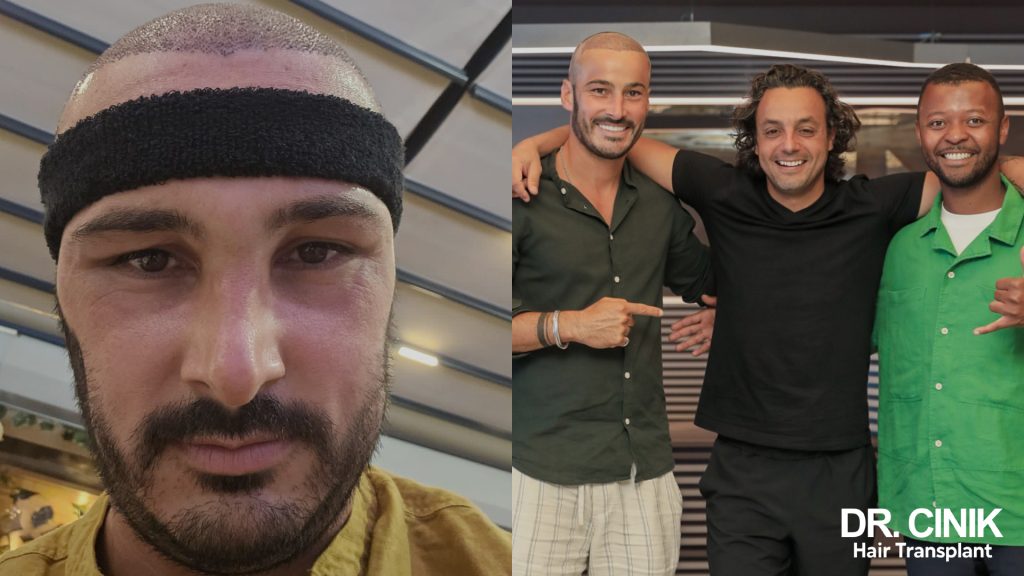What Should I Do if I Experience Oedema (Swelling) After a Hair Transplant?

Sommaire
Oedema, commonly observed after a hair transplant, may be distressing due to its noticeable and uncomfortable swelling. Although it can look concerning and feel uncomfortable, it usually isn’t a health risk and generally subsides within a few days. This article will discuss what causes oedema and how to manage it.

What Is Oedema?
Oedema refers to the abnormal fluid build-up within body tissues, especially between cells. Symptoms include swelling, increased volume in the affected body part, and sometimes a sensation of heaviness or tension. After a hair transplant, oedema typically appears in the days following the surgery.

What Causes Edema After a Hair Transplant?
Inflammatory Response Post-Surgery
Any surgical procedure, including a hair transplant, causes tissue damage that triggers an inflammatory response. This response leads to fluid and immune cell accumulation in the affected area, which can spread to the face, causing oedema.
Anaesthetic and Surgical Fluids
To minimise the pain of hair transplantation, anaesthetics are injected into the scalp. These fluids, along with certain solutions used for graft handling, can accumulate and contribute to oedema.

Extended Lying Position
Being in a lying position for an extended period disrupts normal fluid circulation, increasing oedema risk. During a hair transplant, patients are often in this position for several hours.

Is Edema Dangerous?
Generally, oedema isn’t harmful and may even indicate that the body is healing. However, consult a healthcare professional if it lasts over a week or comes with symptoms like pain, fever, or redness. Such symptoms might signify infection or allergic reaction. Importantly, oedema does not affect the success of a hair transplant.

How Can Edema Be Prevented After a Hair Transplant?
Steroidal Anti-Inflammatory Injection
If suitable, a low dose of a steroidal anti-inflammatory like Prednisolone can be administered to mitigate inflammation and oedema risk.
Head Positioning
Refrain from tilting your head downward or sleeping on your side in the days after the procedure. Consider adjusting your smartphone usage habits.

Compression Bandage
A headband can help by applying gentle, consistent pressure around the forehead, reducing fluid build-up. Dr. Cinik provides headbands to all his patients.

How to Treat Edema if It Occurs?
- Elevate your head during sleep: This encourages fluid drainage and reduces swelling.
- Use cold compresses: Apply for 20-minute sessions multiple times a day to diminish edema. Avoid direct contact with the graft area initially.
- Limit sudden movements
- Reduce salt intake: Helps to limit water retention and severity of edema.
- Avoid alcohol and tobacco: These can impair blood circulation and worsen edema.
- Monitor for infection signs: Redness, warmth, increased pain, or discharge need urgent attention.
- Consult your surgeon: If oedema persists for over a week.

 en
en



